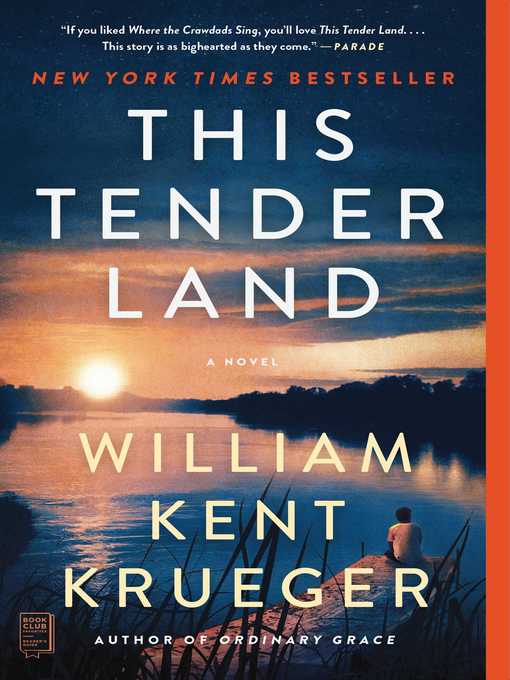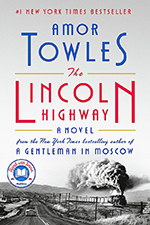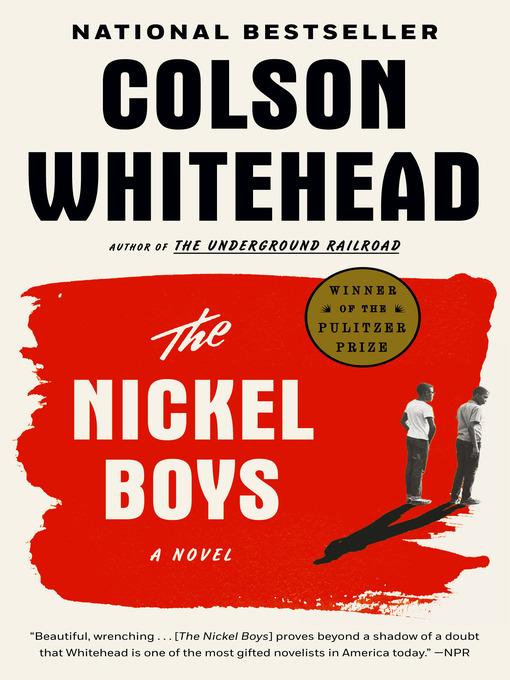 This Tender Land
This Tender Land
by William Kent Krueger
GENRE: Literary Fiction, Historical Fiction
Four young orphans flee a cruel Indian training school during the Great Depression, escaping by canoe on the Gilead River. They travel throughout Minnesota on their quest to safety, meeting a colorful cast of characters along the way. Compared to The Adventures of Huckleberry Finn and The Odyssey, this coming of age tale is a modern classic.
 Author Biography
Author Biography
Raised in the Cascade Mountains of Oregon, William Kent Krueger briefly attended Stanford University—before being kicked out for radical activities. After that, he logged timber, worked construction, tried his hand at freelance journalism, and eventually ended up researching child development at the University of Minnesota. He’s been married for nearly fifty years to a marvelous woman who is a retired attorney. He makes his home in St. Paul, a city he dearly loves.
Krueger writes a mystery series set in the north woods of Minnesota. His protagonist is Cork O’Connor, the former sheriff of Tamarack County and a man of mixed heritage—part Irish and part Ojibwe. His work has received a number of awards, including the Minnesota Book Award, the Loft-McKnight Fiction Award, the Anthony Award, the Barry Award, the Dilys Award, and the Friends of American Writers Prize. His last nine novels were all New York Times bestsellers.
Ordinary Grace, his stand-alone novel published in 2013, received the Edgar Award, given by the Mystery Writers of America in recognition for the best novel published in that year. The companion novel, This Tender Land, was published in September 2019 and spent nearly six months on the New York Times bestseller list. - Author's website
Booklist
Minnesota, 1932. Twelve-year-old orphan Odie and his 16-year-old brother, Albert, are the only white students at the Lincoln Indian Training School. When Odie accidentally kills a fiendish school employee, he, his brother, their Sioux friend Mose, and a bereft little girl, Emmy, whose single-parent mother has been killed by a tornado, must flee by canoe down the nearby Gilead River. And so their adventure begins, narrated by Odie, who is a born storyteller who often entertains his companions with tales. The way to their planned destination, St. Louis, is a checkered one: a one-eyed, troubled man named Jack holds them captive; a bounty hunter nearly captures them; they find respite with a revival tent show; Odie falls in love; and more. Theirs is more than a simple journey; it is a deeply satisfying odyssey, a quest in search of self and home. Richly imagined and exceptionally well plotted and written, the novel is, most of all, a compelling, often haunting story that will captivate both adult and young adult readers. -- Michael Cart (Reviewed 8/1/2019) (Booklist, vol 115, number 22, p26)
Publisher's Weekly
This lively but heavy-handed adventure from Krueger (Ordinary Grace) follows four orphans as they search for safety in Depression-era Minnesota. Storytelling scamp Odysseus “Odie” O’Banion and his more rule-abiding brother Albert are shipped off to the Lincoln Indian Training School after their bootlegger father is murdered. There, along with dozens of Native American children, they endure brutal abuse and neglect; the only bright spot is their friendships with Mose, a teenage Sioux, and Emmy, a precocious girl whose mother, a teacher at the school, is killed by a tornado. After Odie kills the teacher who’s been abusing him, the four children escape down the Minnesota River in a canoe, meeting both friends and foes along the way as they try to evade capture, find a home, and hold onto the bond between them. The encounters bring the era to life as the children meet traveling evangelists, Dust Bowl farmers in shanty towns, and ghettoized Jews in the flats of St. Paul. Krueger keeps the twists coming, and the constant threat of danger propels the story at a steady clip. Though overly sentimental prose (“With every turn of the river, we were changing, becoming different people, and for the first time I understood that the journey we were on wasn’t about getting to St. Louis”) weakens the story’s impact, Krueger’s enjoyable riff on The Odyssey will satisfy fans of American heartland epics. (Sept.) --Staff (Reviewed 07/15/2019) (Publishers Weekly, vol 266, issue 28, p)
Library Journal
/* Starred Review */ Odie O'Banion remembers 1932, when he was 12 and had one of the great adventures of his life. During the Depression, Odie and his older brother, Albert, were the only white children at the Lincoln Indian Training School. The O'Banions were orphans, while the other children had been taken from their parents to have their native cultures and languages beaten out of them. Mrs. Brickman, "the Black Witch," oversaw the abusive school, and after the tragic death of a protector, Odie and Albert fled, along with two other "vagabonds," taking to the river to escape. There they find kindness and assistance in unexpected places. Krueger's second coming-of-age story is not the sequel to Ordinary Grace; it's his version of Huckleberry Finn or the Odyssey, as adolescents are forced to move toward adulthood. It's a remarkable story of a search for home that also reveals the abusive treatment of Native American children in schools and the wanderings of people during the Depression. VERDICT Readers expecting an actual mystery from crime writer Krueger might be disappointed, but those who want to read about the mystery of life will discover what one of Odie's companions observes. "You tell stories but they're real. There are monsters and they eat the heart of children." [See Prepub Alert, 3/4/19.] --Lesa Holstine (Reviewed 07/01/2019) (Library Journal, vol 144, issue 6, p62)
 The Round House
The Round House
by Louise Erdrich
When his mother, a tribal enrollment specialist living on a reservation in North Dakota, slips into an abyss of depression after being brutally attacked, fourteen-year-old Joe Coutz sets out with his three friends to find the person that destroyed his family.
 The Lincoln Highway
The Lincoln Highway
by Amor Towles
In June, 1954, eighteen-year-old Emmett Watson is driven home to Nebraska by the warden of the juvenile work farm where he has just served fifteen months for involuntary manslaughter. His mother long gone, his father recently deceased, and the family farm foreclosed upon by the bank, Emmett's intention is to pick up his eight-year-old brother, Billy, and head to California where they can start their lives anew. But when the warden drives away, Emmett discovers that two friends from the work farm have hidden themselves in the trunk of the warden's car. Together, they have hatched an altogether different plan for Emmett's future, one that will take them all on a fateful journey in the opposite direction—to the City of New York.
 The Nickel Boys
The Nickel Boys
by Colson Whitehead
In this bravura follow-up to the Pulitzer Prize, and National Book Award-winning #1 New York Times bestseller The Underground Railroad , Colson Whitehead brilliantly dramatizes another strand of American history through the story of two boys sentenced to a hellish reform school in Jim Crow-era Florida.